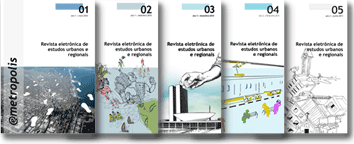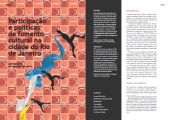-
Tweets
Evolução da estrutura sócio-ocupacional de metrópoles latino-americanas
São Paulo e Cidade do México (2005-2015)
Por Diogo David de Matos
RESUMO
O objetivo deste artigo é investigar a evolução da estrutura sócio-ocupacional de duas metrópoles latino-americanas no período recente em perspectiva comparativa. A hipótese que permeia o trabalho é a de que os processos de reestruturação produtiva e globalização, responsáveis pela especialização de grandes aglomerações metropolitanas nos serviços avançados à produção, causariam um processo de polarização social em termos de ocupação e renda nesses espaços. Após uma revisão teórica sobre estratificação social e sobre a nova configuração metropolitana, constroem-se as estruturas sócio-ocupacionais das duas metrópoles em 2005 e 2015, tendo a ocupação como variável fundamental. Conclui-se pela ausência de polarização social, pelo aumento da participação de profissionais e pela redução da de trabalhadores do secundário, ainda que os grupos que crescem estejam em faixas opostas da distribuição de renda. Por outro lado, a dinâmica dessas metrópoles não parece ser distinta da dinâmica de seus países.
Palavras-chave: Estrutura sócio-ocupacional; Polarização social; Reestruturação produtiva; Metrópole Latino-Americana.
ABSTRACT
The aim of this paper is to investigate the evolution of the socio-occupational structure of two Latin-American metropolises in recent times and its connections in comparative perspective. The main hypothesis is that productive restructuring and globalization have caused a process of social polarization in terms of occupation and income, due to the specialization of large metropolitan agglomerations in advanced production services. After a theoretical review on social stratification and the new urban configuration, the author constructs the socio-occupational structure of both metropolises in 2005 and 2015, taking the individual’s occupation as the fundamental variable. They reach the conclusions of absence of polarization, increase in the proportion of professionals and decrease in the proportion of workers in manufacturing. Moreover, the growing aggregates are in opposite income brackets. However, the metropolitan dynamics doesn’t seem to be distinct from that of countries.
Keywords: Socio-occupational structure; Social polarization; Productive restructuring; Latin-american metropolis.



